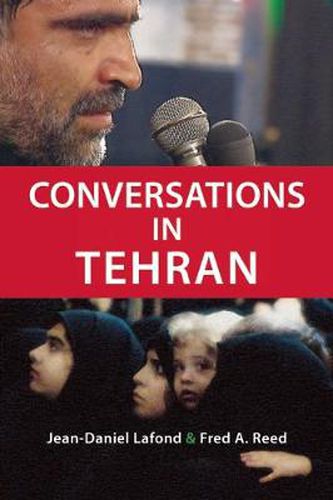Readings Newsletter
Become a Readings Member to make your shopping experience even easier.
Sign in or sign up for free!
You’re not far away from qualifying for FREE standard shipping within Australia
You’ve qualified for FREE standard shipping within Australia
The cart is loading…






In early 2004, filmmaker Jean-Daniel Lafond (Salam Iran, a Persian Letter) and author Fred A. Reed (Persian Postcards: Iran after Khomeini) returned to Iran after a two-year absence-on the eve of the parliamentary elections that were to seal the political defeat of the Reform movement. They had come to interview several of the men and women who had propelled Mohammad Khatami to the presidency in 1997, with a mission to rebuild a civil society in Iran under the banner of human rights, democracy, free speech and a renewed dialogue of civilizations. This is their report: Iran’s once lively press has been all but silenced, the country’s most outspoken journalists imprisoned, and, argues Mohsen Kadivar, one of the regime’s sharpest critics, the shah’s crown has now merely been replaced by the mollah’s turban. Most surprising of all, however, was the populist bitterness expressed against the now beleaguered Reform movement. Too many promises had gone unfulfilled; too many commitments neglected. President Khatami’s Reform movement had failed to improve the people’s livelihood. Worse, it would not, or could not, defend its strongest supporters against assaults by those determined to stop a democratic restructuring of the modern world’s first religious state. It was, said Said Hajjarian, the Reform strategist semi-paralyzed in an assassination attempt, too late : Mahmoud Ahmadinejad and his radical cohorts were already lurking in the shadows.
$9.00 standard shipping within Australia
FREE standard shipping within Australia for orders over $100.00
Express & International shipping calculated at checkout
In early 2004, filmmaker Jean-Daniel Lafond (Salam Iran, a Persian Letter) and author Fred A. Reed (Persian Postcards: Iran after Khomeini) returned to Iran after a two-year absence-on the eve of the parliamentary elections that were to seal the political defeat of the Reform movement. They had come to interview several of the men and women who had propelled Mohammad Khatami to the presidency in 1997, with a mission to rebuild a civil society in Iran under the banner of human rights, democracy, free speech and a renewed dialogue of civilizations. This is their report: Iran’s once lively press has been all but silenced, the country’s most outspoken journalists imprisoned, and, argues Mohsen Kadivar, one of the regime’s sharpest critics, the shah’s crown has now merely been replaced by the mollah’s turban. Most surprising of all, however, was the populist bitterness expressed against the now beleaguered Reform movement. Too many promises had gone unfulfilled; too many commitments neglected. President Khatami’s Reform movement had failed to improve the people’s livelihood. Worse, it would not, or could not, defend its strongest supporters against assaults by those determined to stop a democratic restructuring of the modern world’s first religious state. It was, said Said Hajjarian, the Reform strategist semi-paralyzed in an assassination attempt, too late : Mahmoud Ahmadinejad and his radical cohorts were already lurking in the shadows.